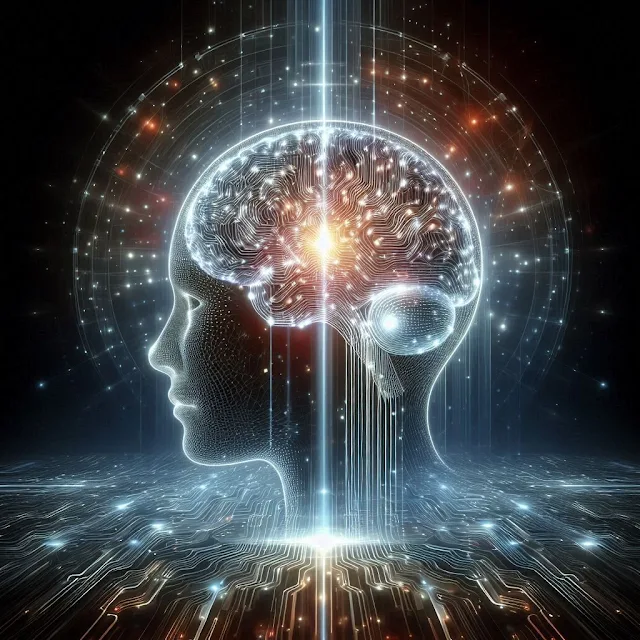In the fast-paced digital world, artificial intelligence (AI) has quietly slipped into our daily lives, becoming an indispensable part of how we interact with technology. One of the most seamless and underrated uses of AI comes in the form of personal assistants like Siri, Google Assistant, and Alexa. These smart assistants have revolutionized daily routines, making once-complicated tasks as simple as a voice command. From managing schedules to controlling smart home devices, AI assistants have truly transformed the way we live, but we don’t always notice their full potential.
As a tech blogger who has been following the evolution of AI closely, I've seen firsthand how these digital assistants have reshaped my own day-to-day life. Let’s take a closer look at how this invisible AI revolution is quietly changing routines worldwide, and why it’s poised to become even more impactful in the near future.
Morning Routine: AI Gets You Going
Imagine this: Your day starts not with the blaring of an old-fashioned alarm clock but with your AI personal assistant gently waking you up. It’s not just about ringing a bell at 7 AM. Instead, my Google Assistant considers my calendar and the weather, adjusting the wake-up time when it’s raining to allow extra time for the commute.
After waking up, I ask, “Hey Google, what’s my schedule today?” Instantly, it reads out my day’s events, sends a reminder about my meetings, and even alerts me about important emails. It doesn’t stop there; I can also ask it to order my morning coffee through a connected app or suggest breakfast recipes from my smart fridge inventory.
Voice Commands that Do More
One of the hidden superpowers of AI personal assistants is how they eliminate the need for screens for simple tasks. In the morning, I used to juggle multiple apps to set reminders, adjust my smart home devices, and check on the weather. Now, I simply ask Alexa or Siri to handle these tasks. It’s freeing to be able to focus on my work or breakfast while a voice assistant manages the background work.
 |
For example, I rely on Siri to track my fitness goals. I simply say, "Hey Siri, how far have I walked today?" and it fetches data from my Apple Watch, giving me real-time updates on my activity levels. This voice-driven interaction has streamlined what used to be a manual and tedious process, allowing me to focus on other things while still staying on top of my health goals.
Work Efficiency and Productivity Boost
For those of us working from home or managing busy schedules, AI assistants have become the ultimate multitasking tool. One particularly transformative aspect is managing tasks and reminders. Google Assistant helps me keep track of everything I need to do throughout the day, from writing deadlines to scheduled Zoom calls.
What’s fascinating is the way AI learns over time. After using Google Assistant for a while, it began suggesting reminders based on my routines—like telling me to take a break when I’ve been working for hours without stopping. It’s these subtle AI-driven recommendations that make me more productive without feeling like I’m tied to a rigid schedule.
AI at Home: The Smart Living Experience
One of the most significant ways AI personal assistants have reshaped my daily routine is through home automation. In my home, every lightbulb, thermostat, and even the coffee machine is connected to either Alexa or Google Assistant. With a simple voice command, I can control the lighting to match my mood or set the temperature to the perfect level for working.
But what really stands out is the personalization. Over time, these assistants start recognizing patterns. For example, Alexa knows that I like to dim the lights and play classical music at 7 PM when I’m winding down for the day. It anticipates my needs, adjusting the environment automatically, without me having to say a word. This kind of AI learning is subtle but incredibly impactful, enhancing my comfort and productivity at home.
Beyond Convenience: A Glimpse into the Future
While personal assistants are already optimizing everyday tasks, we’re only scratching the surface of what’s possible. In the near future, these AI assistants could become even more intuitive. Imagine a world where they don’t just respond to commands but predict your needs. For instance, based on your mood or energy levels, AI could suggest relaxation techniques, offer insights into improving sleep, or recommend taking a break from work when it notices you’ve been too focused for too long.
As AI continues to evolve, its integration into our daily lives will become more profound, shifting from being a helpful tool to something akin to a personal concierge that deeply understands and anticipates our needs.
Conclusion: The Invisible Revolution is Just Beginning
The AI revolution isn’t flashy—it’s quiet and ever-present, seamlessly working in the background to make our lives easier. From managing daily schedules to controlling smart homes, AI-powered personal assistants are reshaping how we interact with technology in ways that feel natural, intuitive, and personalized.
What’s most exciting is that we’re still in the early days of this revolution. As personal assistants continue to learn from our behaviors and become more contextually aware, they’ll likely become an even bigger part of our daily routines. And the best part? You won’t even realize how much they’re helping until you look back and wonder how you ever lived without them.


,%20glowing%20softly.%20The%20room%20is%20gently%20lit,%20and%20the%20smart%20assistant%20is%20displayin.png)
.%20The%20assistant%20is%20displaying%20or%20reading%20out%20r.png)

